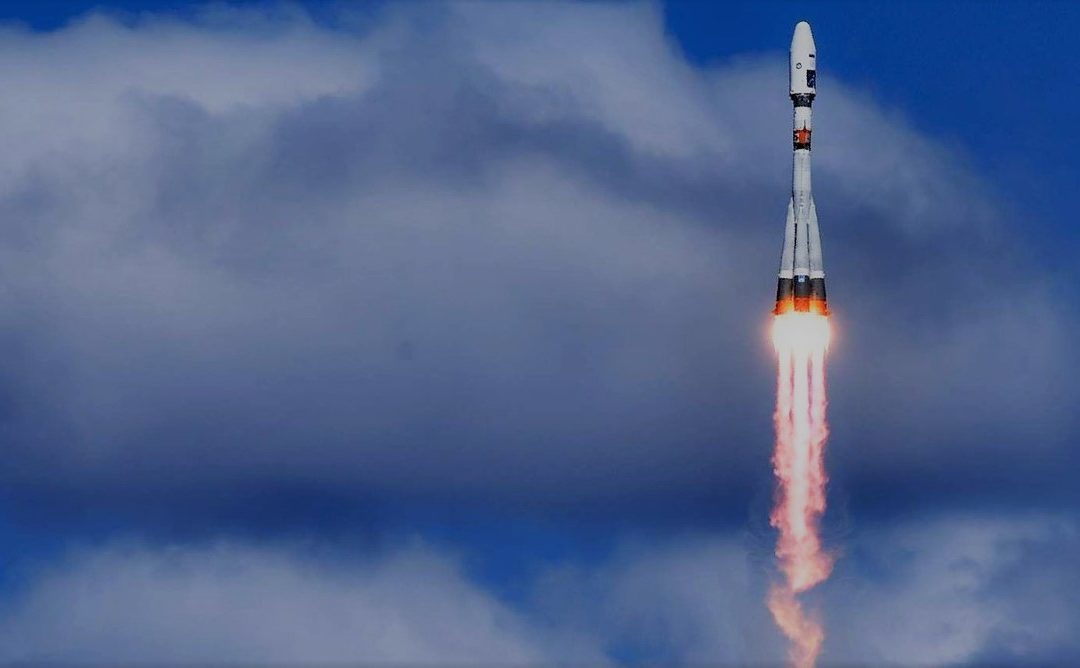
Ago 11, 2023 | The Blog
 Per una volta—anzi, per la prima volta dal 24 Febbraio 2022—non stiamo parlando dei razzi sparati dai russi su obiettivi civili in Ucraina.
Per una volta—anzi, per la prima volta dal 24 Febbraio 2022—non stiamo parlando dei razzi sparati dai russi su obiettivi civili in Ucraina.
Stavolta, dopo una pausa di 50 anni, riprende il programma lunare della federazione russa. L’ultima missione di questo tipo risale infatti ai tempi bui dell’URSS.
Ma perché puntare alla luna proprio ora?
Il momento non è certo propizio per Mosca. La guerra (che ormai quasi nessuno insiste più a chiamare “operazione militare speciale”) dura ormai da oltre 500 giorni e va male, i programmi di collaborazione con le agenzie spaziali dell’Occidente sono stati sospesi, l’economia russa va a rotoli nonostante la propaganda a uso strettamente interno, e infine l’opinione pubblica mondiale è disgustata dalle atrocità commesse dai russi in Ucraina e si domanda che senso abbia rilanciare un ambizioso programma spaziale quando in Russia cresce la povertà e le perdite di risorse umane sul fronte hanno superato la soglia dei 250.000 morti, secondo stime di Kyiv. Per non parlare dei danni enormi subiti dall’Ucraina e che prima o poi Mosca dovrà andare alla cassa a saldare.
La risposta è una: la missione lunare serve a dare lustro all’immagine ammaccata di Putin, il quale ovviamente punta a farsi riconfermare alle presidenziali del Marzo 2024.
Gran parte della popolazione russa è imboccata dalla propaganda di regime e ripete a pappagallo la narrazione ufficiale in materia di guerra ed economia, ma il fronte del dubbio cresce. Un successo della missione lunare risveglierebbe l’orgoglio nazionale e andrebbe a esclusivo vantaggio del presidente-dittatore. Anche se il 20% dei russi (quasi 30 milioni di persone) non ha il bagno in casa, lo sbarco sulla luna sarebbe motivo di soddisfazione proprio per questo segmento emarginato, male informato e facilmente influenzabile.
Prima del Febbraio 2022 non avrei mai pensato di affermare quanto segue: se la missione lunare fallisse sarebbe una vittoria morale per chi rigetta e condanna le mire imperiali di Putin. Gli scopi scientifici non ingannano quasi più nessuno.
“Lo studio della luna non è l’obiettivo”, dice Vitaliy Egorov, giornalista e blogger russo.
Aggiornamento del 20/08/2023: missione fallita, il veicolo spaziale russo si è appena schiantato sulla superficie lunare. Adesso vediamo come vanno le cose con la sonda indiana, che sta per tentare la stessa operazione.
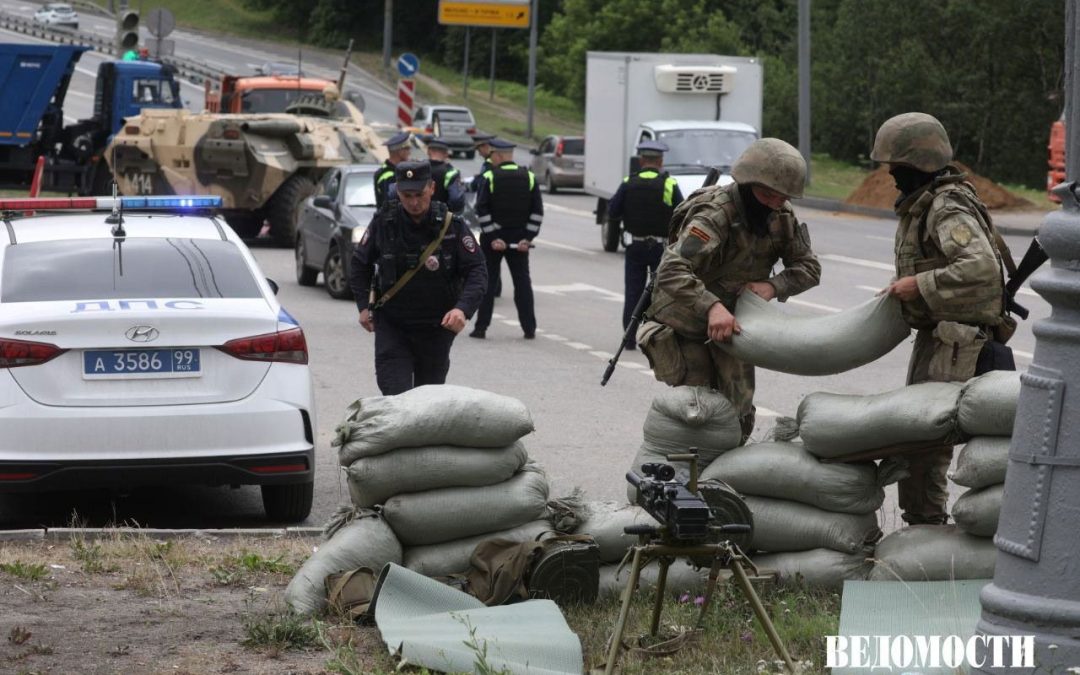
Giu 27, 2023 | The Blog
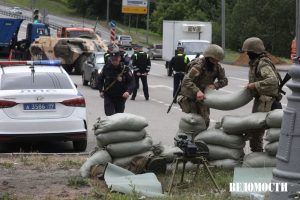 In 1939, Winston Churchill famously described Russia as “a riddle, wrapped in a mystery, inside an enigma.”
In 1939, Winston Churchill famously described Russia as “a riddle, wrapped in a mystery, inside an enigma.”
Even professional Russia watchers are often caught unprepared by the unpredictability of Russia’s politics and actors. It happened when the USSR imploded, and it keeps happening in the Russian Federation as we speak.
I’m obviously referring to Yevgeniy Prigozhin’s “March on Moscow”, which kicked off at lightning speed and was called off equally fast and unexpectedly.
The situation in Russia is still in flux and there’s no telling what will eventually happen to the main players of this drama.
Prigozhin is said to be in Belarus and has released his own version of the events from his new home (which I suspect is going to be very temporary).
Putin’s current whereabouts are not known. He’s played a very reactive role in the whole mess and his credibility and stature have suffered. Clearly, he’s lost control of the situation.
Lukashenko has once again acted as a Putin’s lackey and this is the only element of continuity in the whole story.
Ramzan Kadyrov, the Chechen leader, has managed once again to embarrass himself. He allegedly rushed in with his troops in a bid to stop the Wagner task force from reaching Moscow but never made it, the situation having resolved itself while his goons were still riding in their trucks and posting selfies on TikTok.
All this began unfolding on June 23 and came to an anticlimactic end the following day.
But it’s not over, not by a long shot.
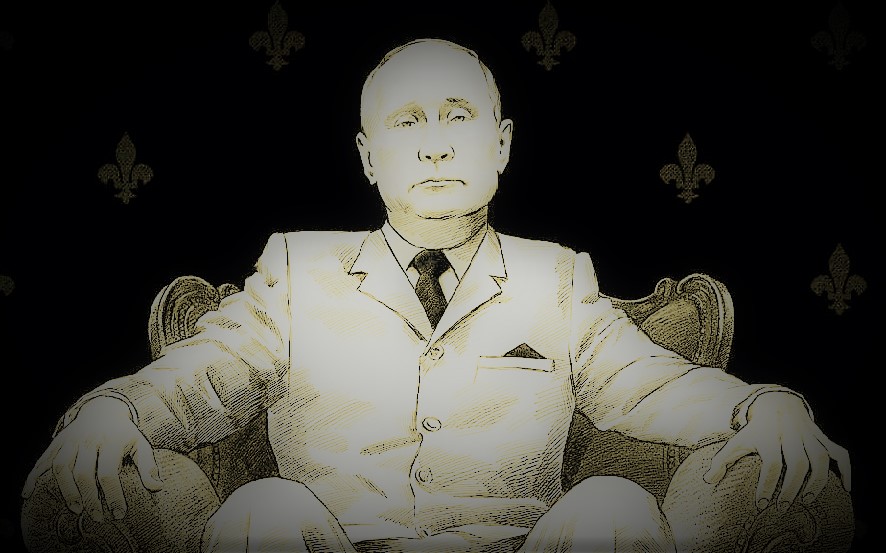
Mag 8, 2023 | The Blog
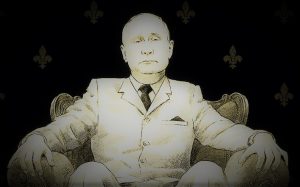
The Law of Unintended Consequences is a centuries-old concept and is said to produce three types of outcomes:
-
-
-
- Unexpected benefits (you plow a field to sow a crop and you find a gold bar buried in the soil.)
- Unexpected drawbacks (you plow a field and accidentally detonate an unexploded bomb.)
- Perverse results that achieve exactly the opposite of what you were aiming for.
A handbook example of the third type of consequences can be found in the catastrophic—and illegal—invasion of Ukraine by Putin’s troops.
Let’s take a look at the self-inflicted damage the Kremlin dwarf has generated while pursuing exactly the opposite goal.
- In trying to prevent Ukraine from becoming a NATO member, Putin has de facto accelerated this neighboring country’s path to membership;
- Because of Putin’s attempt to build an ample buffer between the Russian Federation and the NATO bloc, with Finland rushing to join the alliance in the wake of Russia’s war of choice, the length of the border between the RF and NATO has more than doubled from 1213 kms to 2548;
- Russia’s military, Putin’s pride and joy—as well as a powerful threat to neighboring countries—has failed to achieve all its military goals, thus proving to be an incompetent, corrupt and ineffective power-projection tool. Parenthetically, the export of RF military equipment has all but stopped because of Russia’s need for these armaments. The war in Ukraine has also highlighted the weaknesses of Russia’s military production and any post-war sales prospects look bleak;
- Putin’s energy blackmail, which was supposed to cow Europe into submission, has prompted EU countries to seek alternate suppliers for natural gas and automotive fuels. Russia’s exports have nosedived and whatever oil and gas the RF still sells brings in drastically reduced revenues;
- Putin’s kowtowing to Xi Jinping has failed to secure closer ties with Beijing and the supply of much needed matériel and ammunition. China’s playing the long game and stringing Putin along, with territorial gains its ultimate goal;
- Putin’s reliance on PMCs (private militaries) has given these mercenary organizations immense power and supplies. With the prospect of a collapse of the RF and ensuing civil war, such armies will be deployed to defend the interests of oligarchs and escape Putin’s control.
In a nutshell, the Russian dictator has created several monsters, which are poised to turn against him in the blink of an eye. Stay tuned.

Apr 17, 2023 | The Blog
Spring has sprung—the old poem went.
After an unseasonably cold first half of April, the air is finally mild and the sky almost clear of clouds.
This and early fall are the best times to take the dogs on a long walk through the park.
But the fine weather came too late for my darling Tess, who left us a month ago—I know she would have loved the hike and the smell of the new grass and leaves.
 And it’s too soon for baby Iris, our 3-month-old Airedale pup, who still tires easily and stops every few seconds to sniff and stare at literally everything on her path. In fairness, everything is new and fascinating to her.
And it’s too soon for baby Iris, our 3-month-old Airedale pup, who still tires easily and stops every few seconds to sniff and stare at literally everything on her path. In fairness, everything is new and fascinating to her.
So here I am, longing to stroll in the park—but I see no point in going alone.
Let me be clear here: baby Iris won’t replace Tess, as I keep saying to myself, my neighbors, and assorted dog people. In September 2013, at the age of two months, Tess staked a claim to a chunk of my heart and still defends it with the snarling determination of a Giant Schnauzer.
Iris is well on her way to staking her own claim to a part of my cardiac muscle, and it’s probably right next to Tess’s. It’s the best real estate in me and it is where my softheartedness resides.
Iris will be 8 months old in the fall and we’ll hit the park then. I’ll show her Tess’s favorite spots and watch her while she explores them for the first time.
I’ll be sure to wear sunshades and bring a pack of tissues—in case we stumble upon a patch of onion grass, of course.

Apr 6, 2023 | The Blog
 Tess crossed the “Rainbow Bridge” five weeks ago and left a huge void in our hearts.
Tess crossed the “Rainbow Bridge” five weeks ago and left a huge void in our hearts.
She’ll never be forgotten or replaced. She was a difficult dog but had a big heart, and it pains me to remember the moment that heart stopped and she sighed for the last time while we held her in our arms.
But life must go on.
We found a new puppy, she’s a 2.5-months-old Airedale and her name is Iris.
When we first saw her in the photo her breeder sent us, we thought this was a “new Tess” from the way she sat propped on her sturdy front legs.
But Iris is not a new Tess, she’s herself and we love her for what she is and the beautiful adult dog she will become.
Tess lives on in our memories and in the hundreds of photos we have of her. Almost ten years of her in our lives left an indelible mark and we’ll treasure it forever.
We could not save her, but we find comfort in knowing we gave her the best life we could and in remembering how she quietly paid us back, day after day.

 Per una volta—anzi, per la prima volta dal 24 Febbraio 2022—non stiamo parlando dei razzi sparati dai russi su obiettivi civili in Ucraina.
Per una volta—anzi, per la prima volta dal 24 Febbraio 2022—non stiamo parlando dei razzi sparati dai russi su obiettivi civili in Ucraina.







